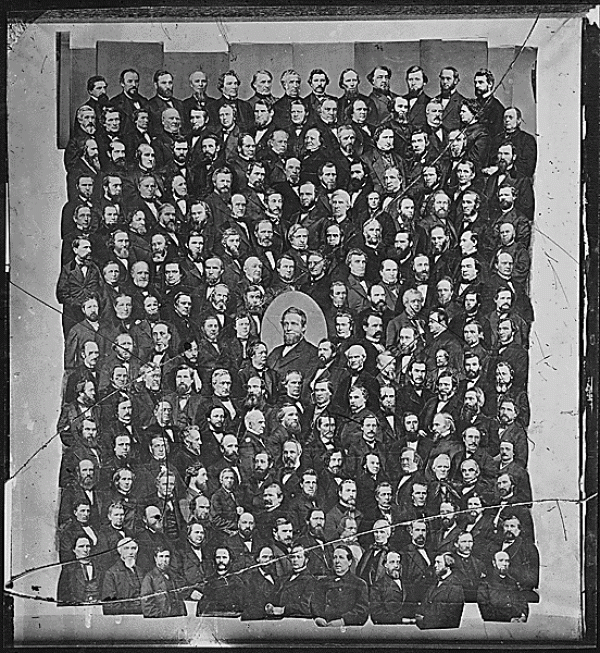When you vote in November, you won’t be casting your ballot directly for the Republican nominee or the Democratic nominee or any other candidate who wants to be President. Instead, you will be voting for the people who will actually “elect” the next President. They are called “electors,” and their names are often on the … Continue reading The National Archives and the Electoral College
Tag: elections
The “Gerry” in Gerrymandering
Today's post comes from James Worsham, editor of publications for the National Archives. The U.S. Supreme Court this week decided not to get involved in whether certain legislative and congressional districts have been “gerrymandered”—a practice that dates to the early days of the country. The cases before the court involved a practice in which districts … Continue reading The “Gerry” in Gerrymandering
The Election of 1800
Anyone who is a fan of the hit musical Hamilton knows the song “Election of 1800.” It depicts an infamous election that ultimately led us to change our Constitution. By 1800, the nation's first two political parties were beginning to take shape. The two major candidates for President were the Federalist President, John Adams, and the … Continue reading The Election of 1800
The Not-So-Lame Amendment
Today's post comes from Hailey Philbin in the National Archives History Office. The 20th Amendment is often referred to as the Lame Duck Amendment. It was passed by Congress on March 2, 1932, and ratified on January 23, 1933. The amendment changed the date of the Presidential inauguration from March 4 to January 20. It … Continue reading The Not-So-Lame Amendment
New York’s First Senators: Late to Their Own Party
Today’s post comes from Dan Ruprecht, intern in the Center for Legislative Archives at the National Archives in Washington, DC. The Center for Legislative Archives is marking the 225th anniversary of the First Congress by sharing documents on Tumblr and Twitter; use #Congress225 to see all the postings. When Congress opened its doors under the new Constitution for the first … Continue reading New York’s First Senators: Late to Their Own Party
The 17th Amendment Observes Its Centennial
When Abraham Lincoln and Stephen Douglas traveled around Illinois in 1858 debating each other while vying for a seat in the U.S. Senate, they weren’t looking for votes from the masses. They were seeking votes in the Illinois legislature. Douglas was the incumbent senator, and Lincoln, who had served one term in the House in … Continue reading The 17th Amendment Observes Its Centennial
The Election isn’t over yet…
If you thought the Presidential election was over and all the votes were counted, you’re wrong. The formal election is Monday, December 17, when “electors” meet in their respective state capitals to cast their votes for President and Vice President. Although the names Barack Obama and Mitt Romney appeared on the November ballot, you were … Continue reading The Election isn’t over yet…
Constitution 225: Blueprint for the Electoral College
Today’s post was written by National Archives volunteer Paul Richter. It is part of a series tracing the development of the Constitution in honor of the 225th anniversary of this document on September 17, 2012. By the end of August, the delegates to the Constitutional Convention were tired. They had been convening and debating for … Continue reading Constitution 225: Blueprint for the Electoral College
Lame ducks? Blame the Constitution.
Congress is back in town this week, and a new crop of Representives is on Capitol Hill. If you follow politics, or live in Washington, DC (and therefore hear about politics every time you turn on the news), you know that the end of 2010 meant ducks. Lame ones. This happens when Congress has to reconvene after the … Continue reading Lame ducks? Blame the Constitution.
A midterm referendum on Abe Lincoln
Today's post comes from National Archives Office of Strategy and Communications staff writer Rob Crotty. History tends to show that midterm elections are never particularly good for the sitting President. In 2006, many Republicans were moved from their seats due to dissatisfaction with George Bush's policies. In 1994, Republicans swept the House as a referendum … Continue reading A midterm referendum on Abe Lincoln










